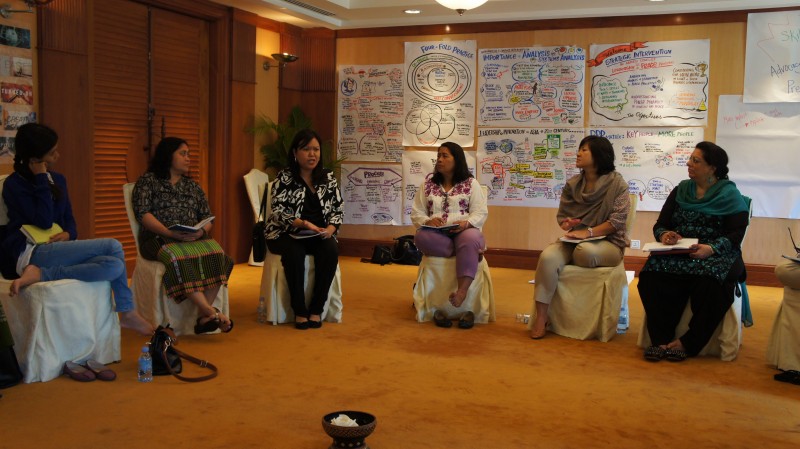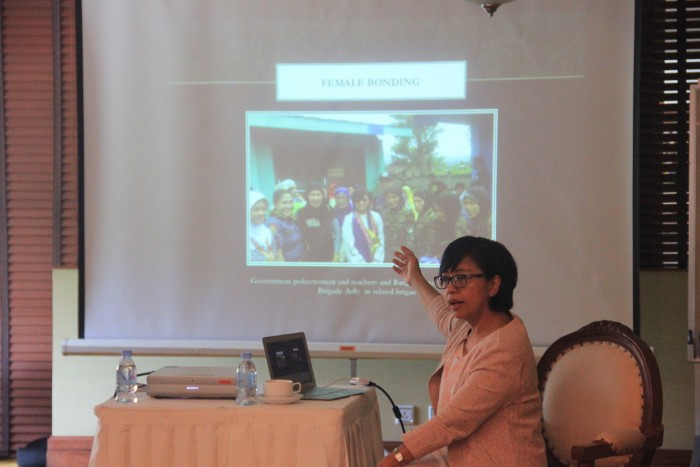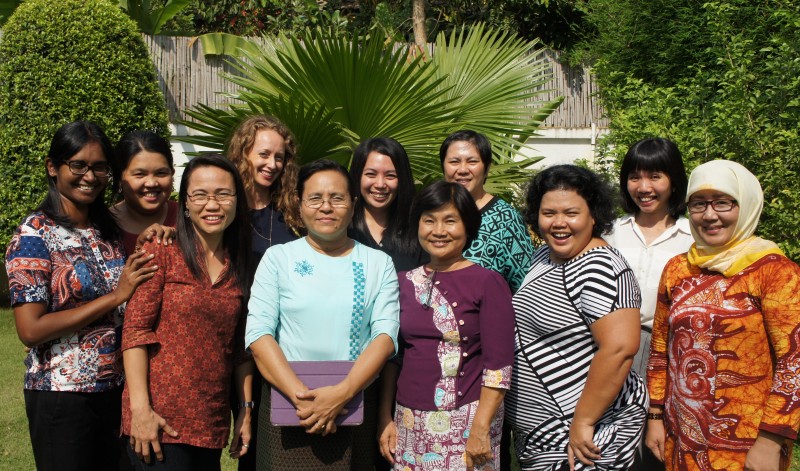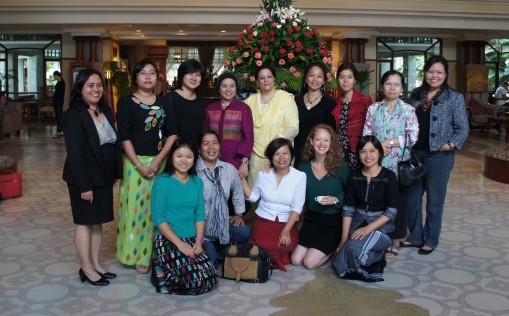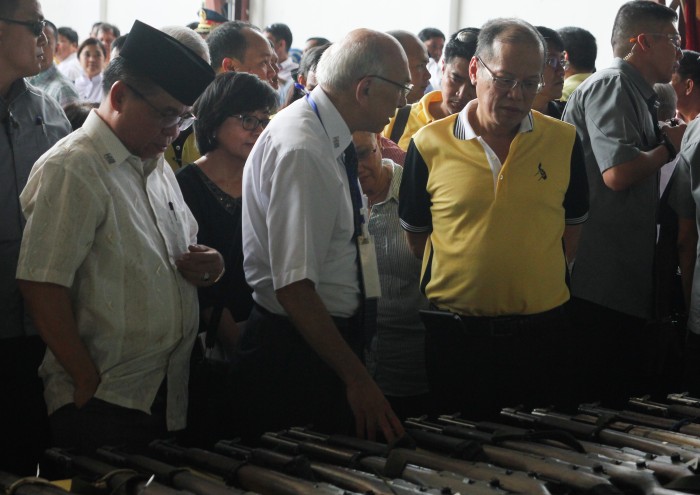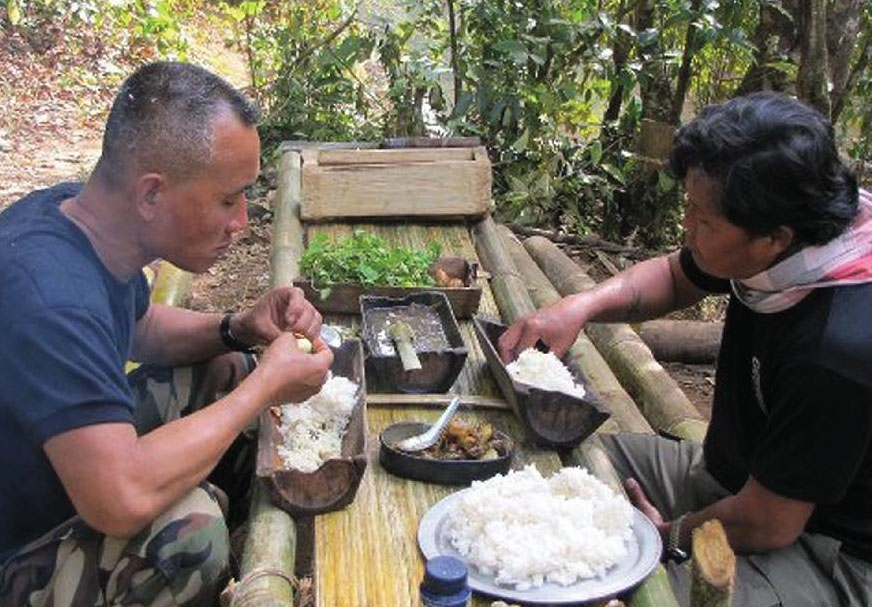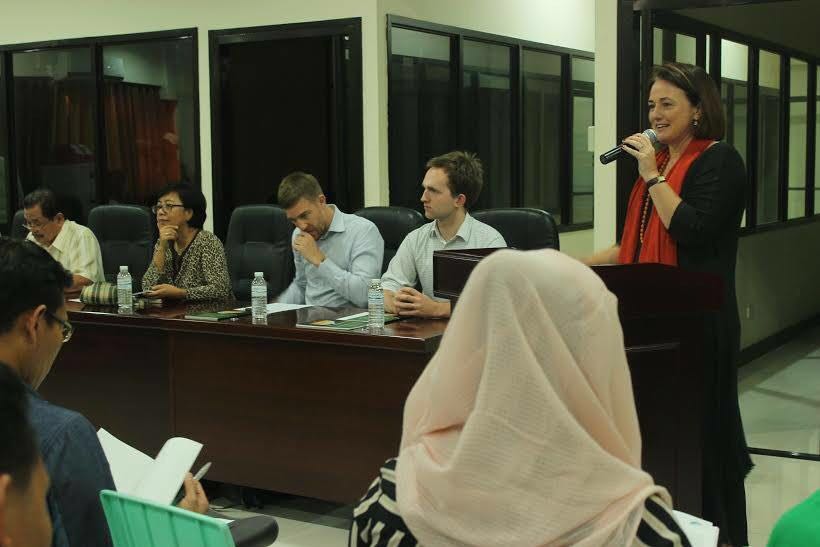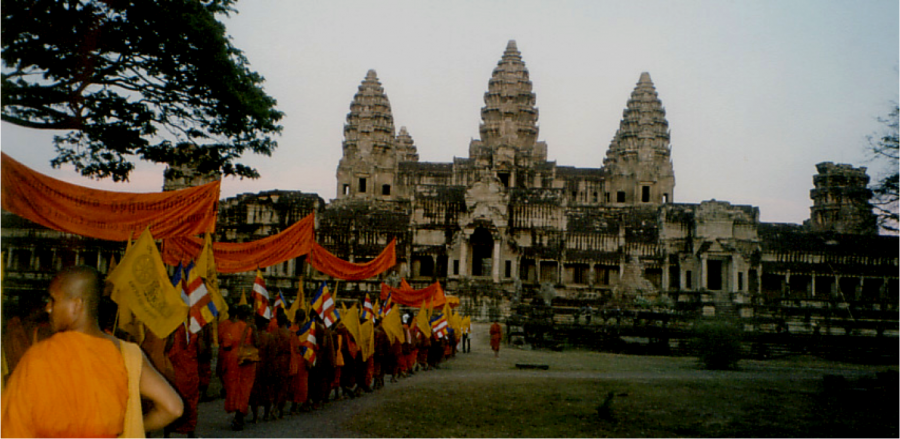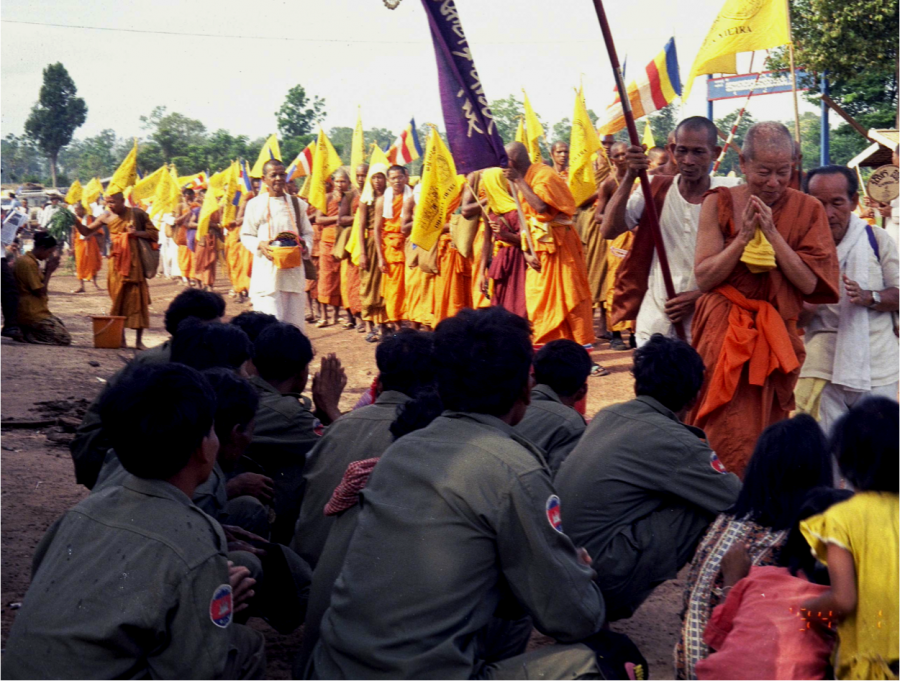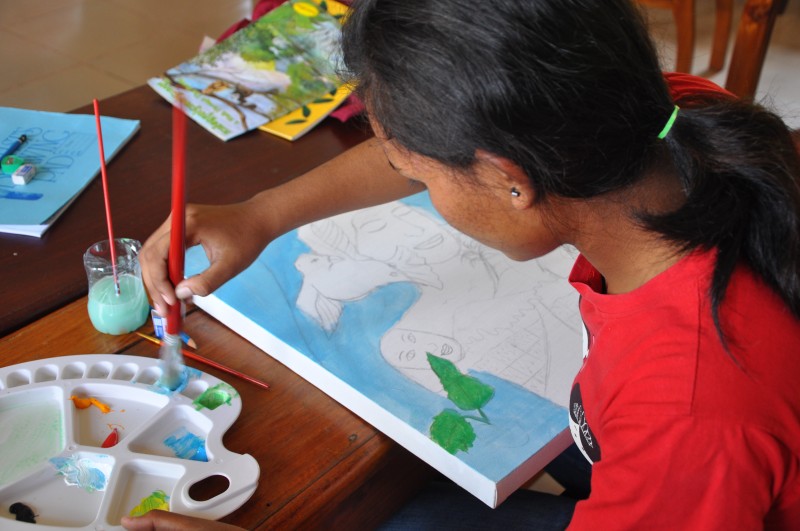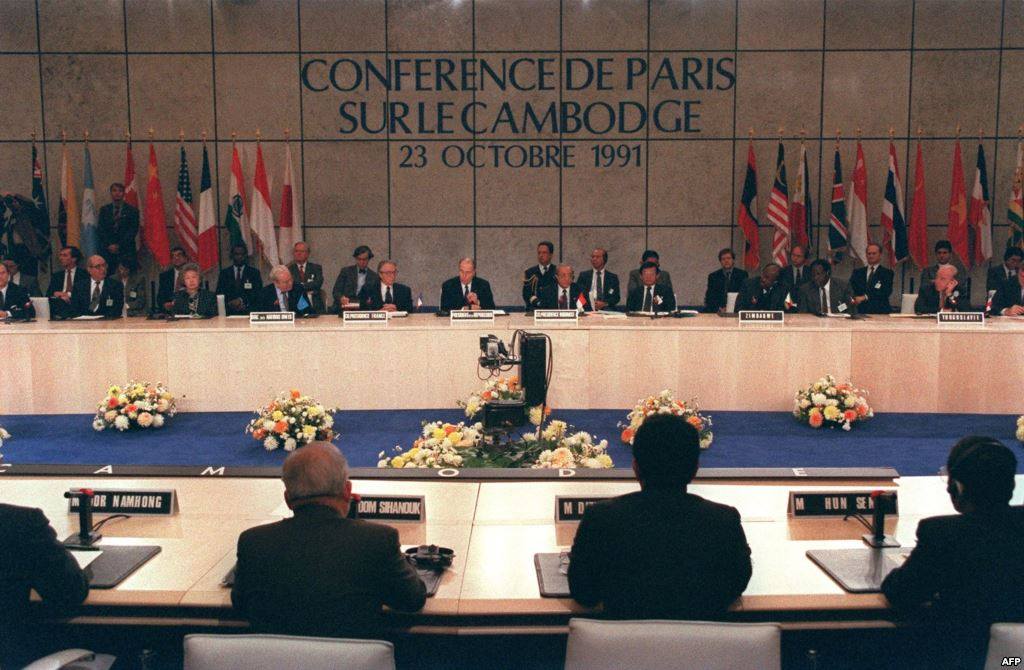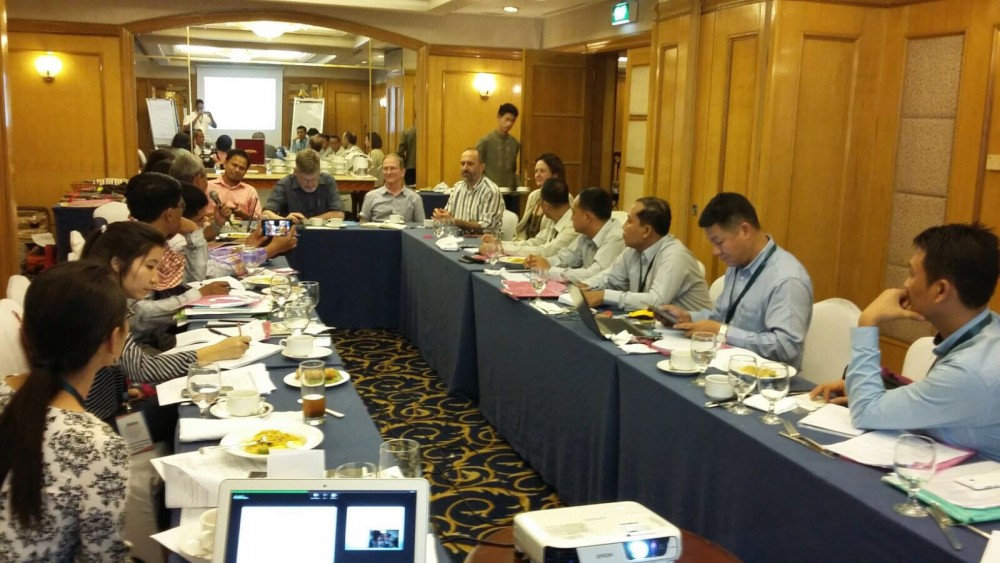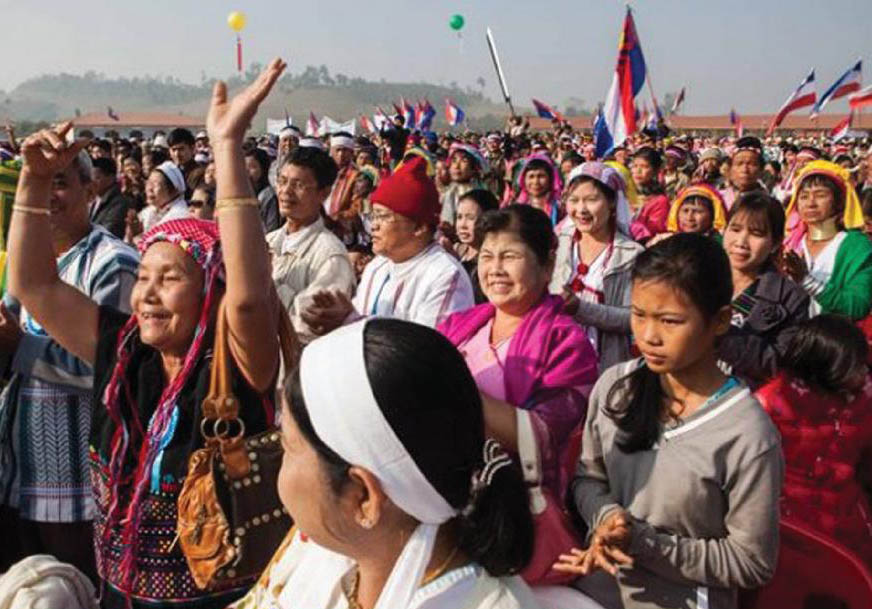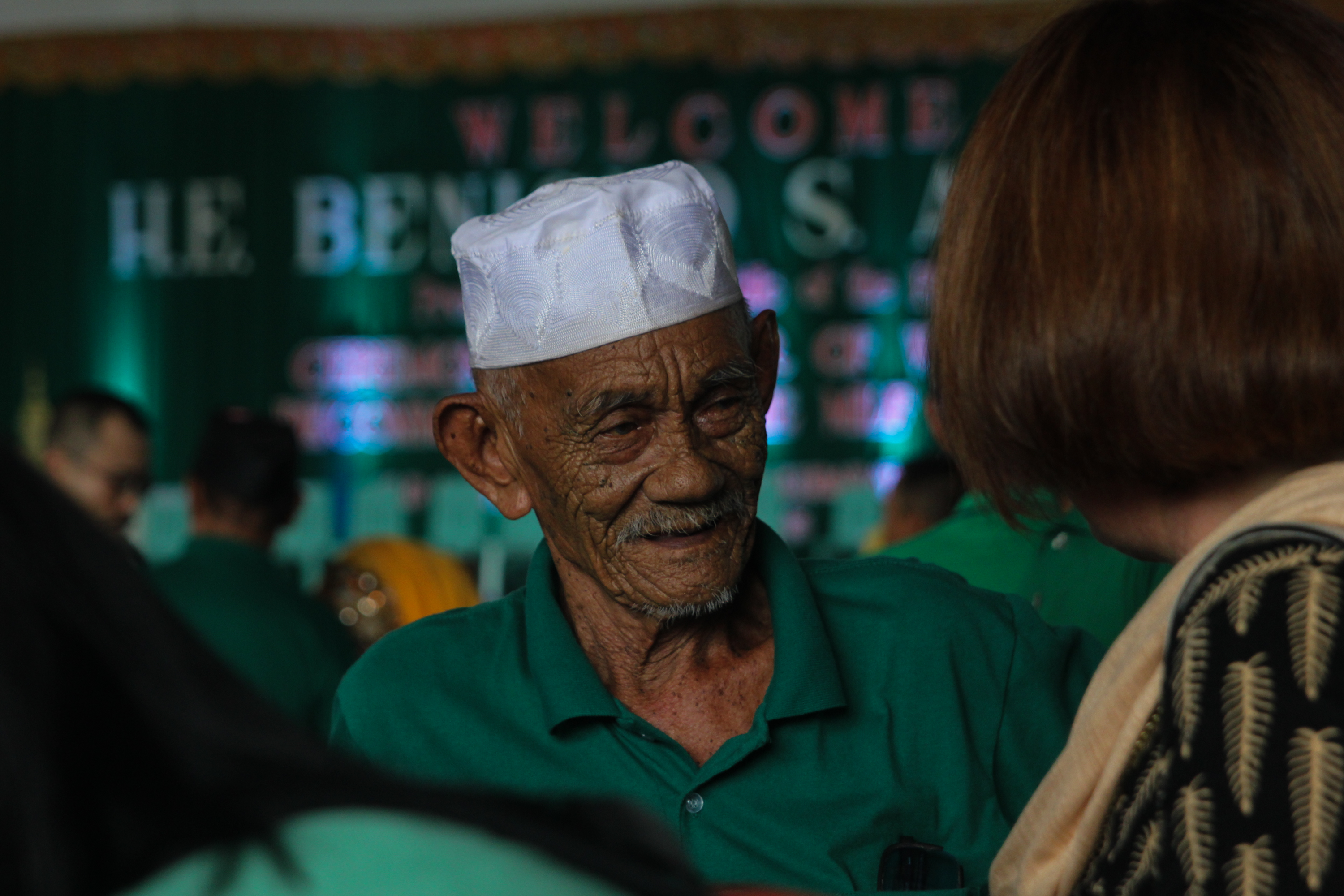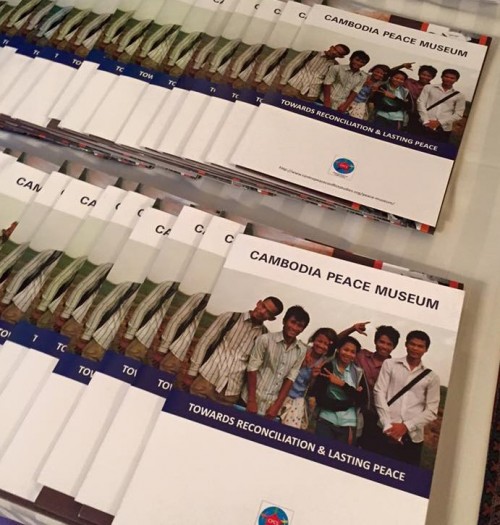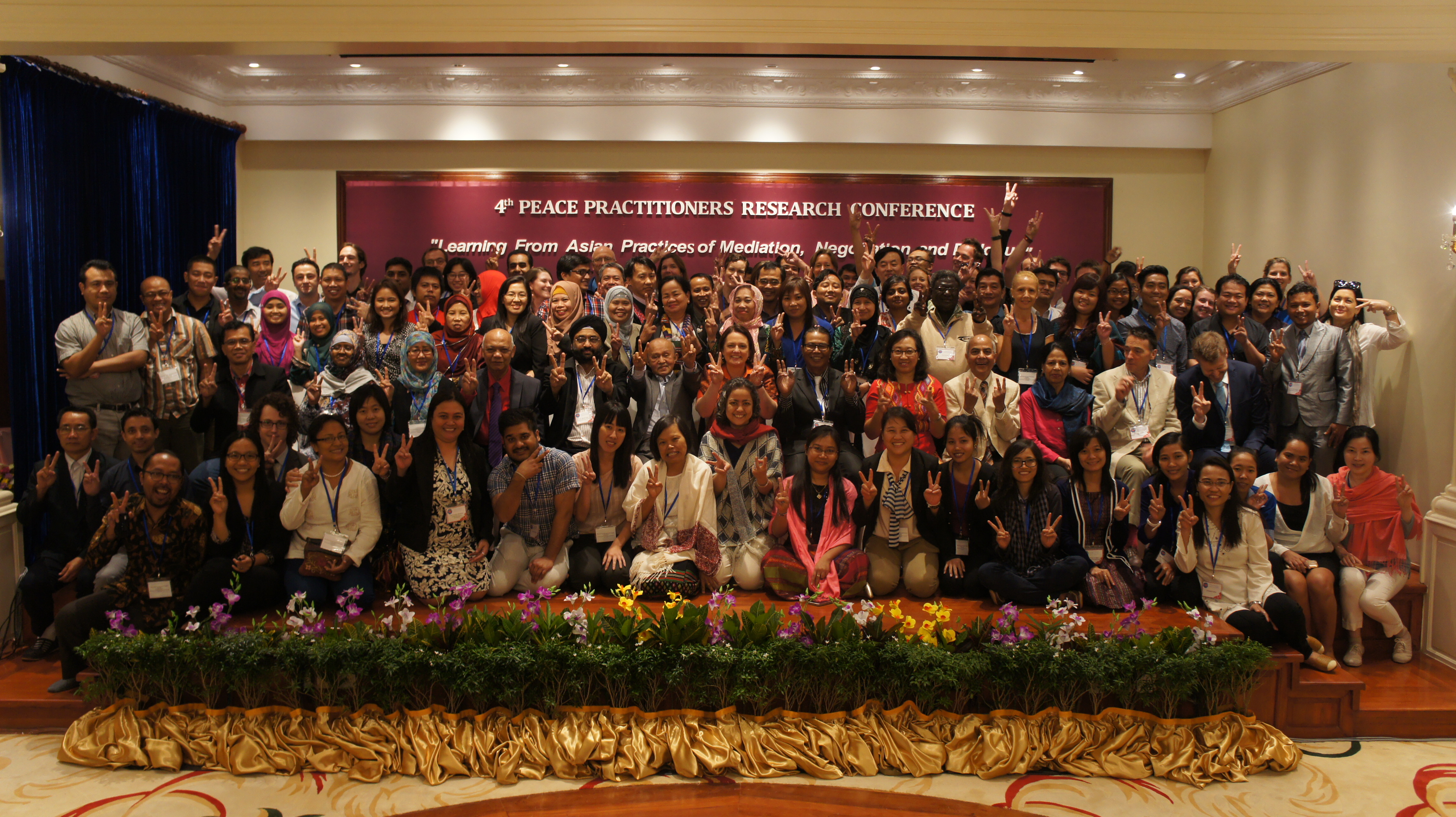Strengthening strategic peacebuilding
By fostering the authentic leadership of a comprehensive constellation of key peace leaders across all sectors, the overall inclusivity, resiliency and sustainability of peace is strengthened. The result to date has been the creation of groups of women who feel personally and professionally enriched and renewed. Over the months, the groups develop great respect for... Read More
Approach & methodology
Slowing down to go fast Over a period of approximately six months, the programme offers space to get away from the stress of work and be in community with a group of peers. We gather and work in beautiful peaceful settings, intentionally offering refreshing and relaxing environments in order to ensure that the women leave... Read More
Cultivating systems & self-awareness
So much time and effort in peacebuilding work is often dedicated to changing the system – changing ‘it’ rather than changing ‘us’. The skills and frameworks to be strategic in our work are absolutely necessary to be effective. However, true systems change – the goal of conflict transformation – also requires that we as individuals change, that the consciousness of... Read More
The Mulitplier Effect
The programme is invite only and focuses on a select group of women already in positions of leadership in current peace processes in Asia. CPCS has identified these women based on their position, passion, commitment to conflict transformation and their proven ability to move things forward. All of the leaders possess high levels of legitimacy... Read More
Empowering women at the forefront of peace
Increasing women’s participation in peace efforts is not just a question of quantity – it’s also about increasing the quality of leadership. This focus on the quality of an individual’s leadership is at the heart of the Peace Leadership Programme. The persistent and significant gap in women’s decision making power and formal participation in peace processes reflects... Read More
What next in the Mindanao peace process?
Emma Leslie & Kristian Herbolzheimer The non-passage of the Bangsamoro Basic Law (BBL) by Congress did not come as a surprise. It was a scenario foreseen by many since early after the Mamasapano tragedy in January last year. In fact, given the risks that Congress might enact a law that was not compliant with the Comprehensive... Read More
Liaison Offices Learning Paper available in Burmese
Building Infrastructures for Peace: The Role of Liaison Offices in Myanmar’s Peace Process, a Learning Paper published by CPCS, is now available in Burmese. Based on CPCS observations and interviews with over 100 liaison office staff, this paper provides an analysis of liaison offices in the scope of the larger peace process to provoke insights... Read More
MILF peace history launched in Mindanao
On February 15, the Centre for Peace & Conflict Studies officially launched a new book, The Journey of the Moro Islamic Liberation Front’s First Ex-Combatants, at the Bangsamoro Transition Commission (BTC) in Cotabato, Mindanao, the Philippines, following a launch in Manila on February 12. Produced with support of the UK Embassy in the Philippines, the... Read More
Reaching out, sharing reflections
MUSEUM DIARY: Phnom Penh, February 11 2016 The Peace Museum Team has just wrapped up a busy week in Phnom Penh. We met with several embassies, international NGOs and Cambodian peacebuilders to share our plans for 2016 and how we will involve Phnom Penh and the rest of the country. The Paris Peace Accords were signed... Read More
CPCS receives first Peace Museum archives
On February 4, CPCS Co-founder and Peace Museum visionary Ngarm Soth Plai and CPCS Executive Director Emma Leslie accepted the first archives for the Cambodia Peace Museum from Venerable Tola and Bob Maat at Battambang Buddhist University. The archives document the story of Venerable Samdech Preah Maha Ghosananda – a key figure in Cambodia’s post-Khmer Rouge and civil... Read More
Exploring Cambodia’s peace and history through art
Centre for Peace & Conflict Studies co-founder and Cambodia Peace Museum visionary Ngarm Soth Plai and Siem Reap-based artist Sasha Constable recently visited the Cambodia Landmine Museum (CLMM) to give a presentation on peace to 26 youth ranging from 11 to 21 years old. The presentation aimed to introduce and discuss issues around the concept... Read More
What are Peace Infrastructures?
The following is an extract from the CPCS Learning Paper – Building Infrastructures for Peace: The Role of Liaison Offices in Myanmar’s Peace Process. In the past decade, the peace infrastructure framework has emerged as a key aspect of conflict transformation. The concept was first developed by John Paul Lederarch who introduced the term in 1999.... Read More
The year ahead for the Peace Museum
MUSEUM DIARY: January 18, 2015 2016 marks the 25th anniversary of the signing of the Paris Peace Accords on 23rd October 1991. The Paris Peace Accords signified an official end to the civil war that was plaguing Cambodia from the 1960s through the 1980s, and laid the foundation for a transition to democracy in Cambodia. These agreements are... Read More
Philippine Government, MILF share peacebuilding experiences with Myanmar group
The Centre for Peace & Conflict Studies (CPCS) organised an exposure visit to Manila and Cotabato in Philippines from December 12-18, 2015 for 10 members of the Myanmar Joint Monitoring Committee (JMC), one of the peace infrastructures created after the signing of the Nationwide Ceasefire Agreement in October 2015. Four high-ranking officials from the Myanmar... Read More
Philippines, MILF share peacebuilding experiences with Myanmar group
The Centre for Peace & Conflict studies organised an exposure visit to Manila and Cotabato in Philippines from December 12-18, 2015 for 10 members of the Myanmar Joint Monitoring Committee (JMC), one of the peace infrastructures created after the signing of the Nationwide Ceasefire Agreement in October 2015. Four high-ranking officials from the Myanmar armed... Read More
Learning Paper: Karen Unity Building Initiatives
In light of ongoing unity-building measures in Myanmar, Karen Unity Building Initiatives: Towards sustainable peace in Myanmar examines the Karen history of conflict, seeking to analyse the push for greater unity amongst the Karen. The paper explores Karen opinions and experiences of unity building, derived from conversations with Karen individuals from various communities, civil society organisations (CSOs), armed... Read More
New paper analyses Karen unity building
A new CPCS Learning Paper examines the Karen history of conflict, seeking to analyse the push for greater unity amongst the Myanmar ethnic group based on conversations with Karen individuals from various communities, civil society organisations, armed groups, political parties and government offices. READ MORE
“Let’s listen to what they have to say”
The following is the preface to The Journey of the Moro Islamic Liberation Front’s First Ex-Combatants. Download the full publication here. On June 16, 2015 a Ceremonial Turnover of Weapons and Decommissioning of the Moro Islamic Liberation Front (MILF) combatants was held at the old Capitol Building in Sultan Kudarat, Maguindanao. This ceremony marked the first... Read More
New way to support Peace Museum
MUSEUM DIARY: December 8, 2015 Hosting our first event in New York created a great opportunity to reconnect with long-time friends and colleagues who have known and worked alongside CPCS co-founder and Peace Museum visionary Soth Plai Ngarm and CPCS Executive Director Emma Leslie in Cambodia in the 1990s. Some of the people who joined us for The Iliad included the... Read More
4th Peace Practitioners Research Conference
Siem Reap, Cambodia December 9-10, 2015 Learning from Asian practices of mediation, negotiation & dialogue The 2015 Peace Practitioners Research Conference (PPRC) brought together more than 120 peace scholars and practitioners to critically reflect on lessons learned in the areas of mediation, negotiation and dialogue from current peace processes in the Asia region. Some of the... Read More

